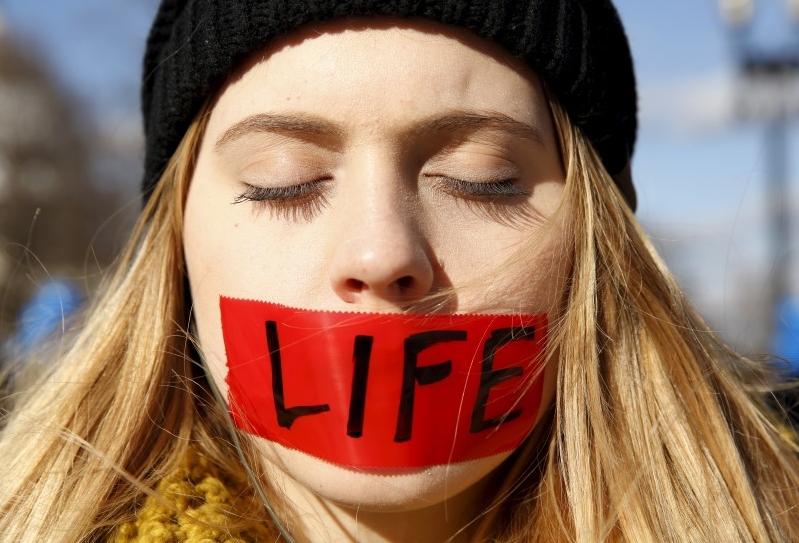
Alabama Governor Robert Bentley signed new abortion restrictions into law on Thursday, limiting the proximity of clinics to public schools and banning a procedure used to terminate pregnancies in the second trimester, local media reported.
The Republican governor signed two anti-abortion laws, according to the Montgomery Advertiser and other local outlets.
One prevents state health officials from issuing or renewing the licenses of abortion clinics within 2,000 feet of public schools serving students in grades kindergarten through eight. Advocates said the measure would protect students from exposure to anti-abortion demonstrations.
The measure could force the closure of two clinics in Huntsville and Tuscaloosa, according to the American Civil Liberties Union of Alabama.
Their licenses would not be renewed in the coming months under the new law, said Susan Watson, executive director of the state ACLU, which intends to challenge the measure in court.
"It would really reduce the access in the northern part of Alabama," she said, noting that some women would be closer to Tennessee than the state's other clinics.
Under the law, Alabama could be reduced to three abortion clinics, she said.
The restriction comes amid a wave of laws being adopted by states as conservatives seek to chip away at the U.S. Supreme Court's landmark 1973 Roe v. Wade decision to legalize abortion.
Restricting abortion clinics based on proximity to a school represents an approach not yet seen in other states, according to the Guttmacher Institute, which tracks reproductive health policy.
Alabama also on Thursday became the fifth state to restrict an abortion method commonly performed in the second trimester of a pregnancy, known as dilation and evacuation or D&E. Opponents call it dismemberment abortion.
The two Alabama clinics affected by the school restriction are also the only ones performing the procedure in the state, according to the ACLU, which plans another legal challenge.
Kansas and Oklahoma enacted such bans last year, which are being challenged in court and not in effect. This year, similar restrictions were signed into law in Mississippi and West Virginia, according to the Guttmacher Institute.






